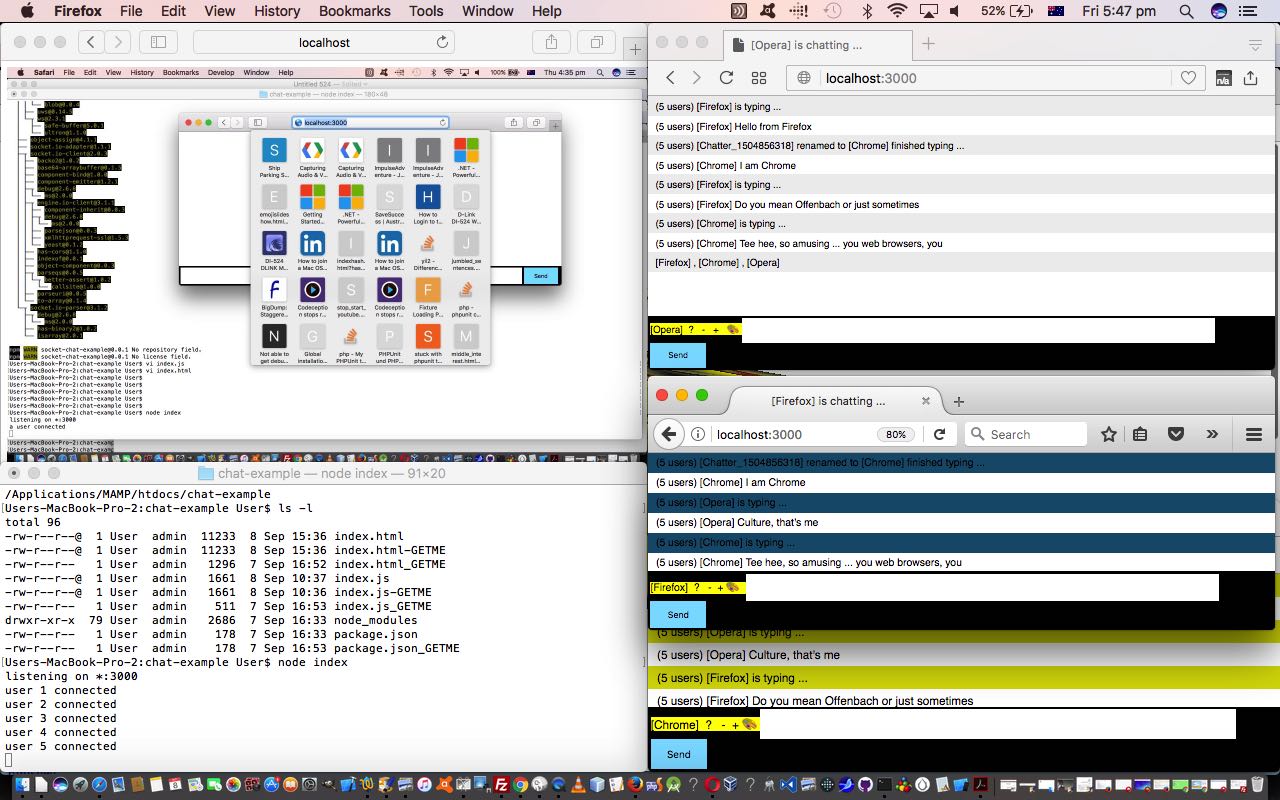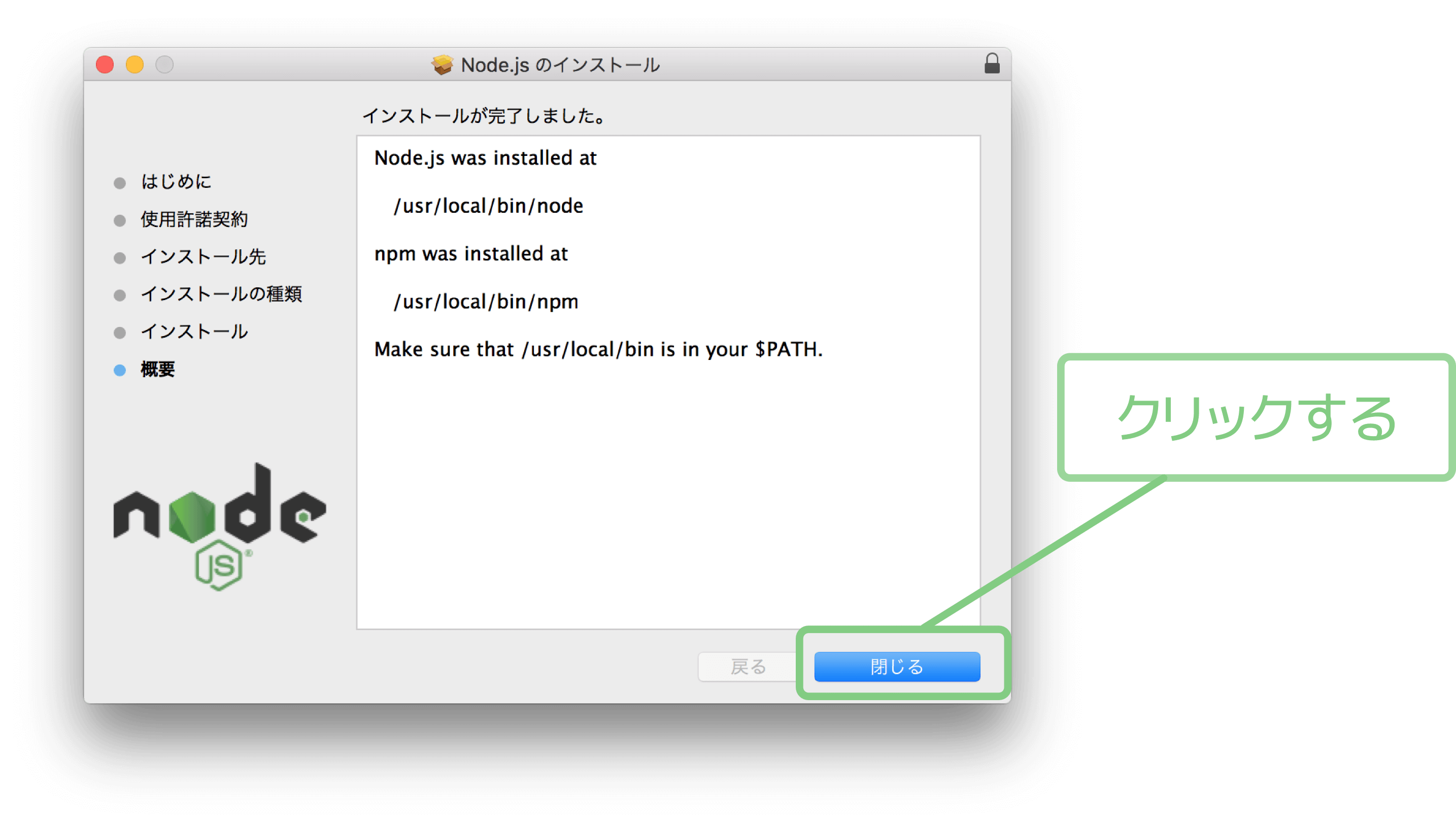- Installing Node Js Windows 10
- Install Node Js On Windows
- Node Js Download For Mac Windows 10
- Node Js Download For Windows
Node.js and npm can be installed from a download link. Go to the Node installation page, and download the Node installer. I have a 64-bit Windows 10 OS, so I chose that one. Install Node.js on Mac OS X and Windows. Node mac javascript nodejs windows insallation. For Mac OS X Via Installer Go to Download page on Node.js and click on Macintosh Installer box. This will start down downloading Node installer for mac. The downloaded file will be named node-v.pkg. To install the updates of Node and NPM on windows system just download the installer from the Node.js Installer page and run it again like you do when installing. The new updated version of Node and NPM will replace the older versions. There are several ways to install Node.js and NPM on the Mac, including using a prebuilt packaged installer, or by using Homebrew. This tutorial will cover both, and either approach should work find on any modern version of MacOS system software.
recently, I started studying node.js
.. my favorite IDE is eclipse, I guess everyone does like it.
However, when I installed nodeclipse plugin to Juno, yes, it worked,but no as fancy as I expected.
I searched and found webmatrix2 is quite good for node.js.
So, I'm going to try it.
Anyway, my question is if there is any good ide for mac....
10 Answers
Eclipse is an option with the nodeclipse plugin. Visit: http://www.nodeclipse.org/
I still prefer Webstorm by JetBrains. They have a work-in-progress browser debugger as well.
This is a pretty old post, but I came across it in my search.
For people of the future, I would recommend https://atom.io
It has great git support and tons of cool plugins.
Installing Node Js Windows 10
wyzkid207wyzkid207Visual Studio Code is a great IDE for Node.js and Javascript. It is based on GitHub's Atom editor.
FlorianFlorianTry inteliJ Idea 12.0 it has nice node.js plugin.
I use it right now. Idea has so much cool features. When you start to use it you forget about other Ides))
kunalWebstorm is pretty good and popular, and works on OSX: http://www.jetbrains.com/webstorm/
JWKJWKNot sure if anyone has mentioned this but I found this today when searching for IDE for Node.js.
It's called Nide (http://coreh.github.io/nide/).
Seems to be dedicated just for Node.js, although the trade off is, there's no native Windows or Linux version yet but apparently you can run it through or web browser, otherwise if you're on a Mac, you can install the native application dmg.
Just a note of warning: it's still in its early stages so don't depend your mission critical projects on it just yet! :P
ZhangZhangThe node plugin is not supported on MacOS. See this page if you'd like to vote for MS to add support to VS on MacOS.
node-mirror is worth a shot. it has - syntax highlighting- error checking- a terminal- and a very rudimentary node.js debugger which is in development right now.
Try Webstorm from jetbrains.It comes with a pretty nice auto complete.Here is the link .But it comes with a price.If you need a free IDE,go for atom.io.
Microsoft have just announced Visual Studio for Mac (as opposed to Visual Studio Code) and there is a plugin for Node.js.
Willem van KetwichWillem van Ketwich
Not the answer you're looking for? Browse other questions tagged macosnode.js or ask your own question.

Currently I am using Node.js v0.6.16 on Mac OS X 10.7.4. Now I want to upgrade it to the latest Node.js v0.8.1. But after downloading and installing the latest package file from nodejs.org, I found that system is still using v0.6.16 instead of v0.8.1 when I typed 'node -v' in a terminal. Is there any step that I have missed? Or, should I thoroughly uninstall the old version before installing the latest one?
BTW, I know that nvm can help to manage the nodejs package
Is there any way to upgrade the Node.js without using it?
I have googled this problem, but it seems to me that there is no very clear answer to this question for the latest Node.js.
Tot Zam23 Answers
Here's how I successfully upgraded from v0.8.18 to v0.10.20without any other requirements like brew etc, (type these commands in the terminal):
sudo npm cache clean -f(force) clear you npm cachesudo npm install -g ninstall n (this might take a while)sudo n stableupgrade to the current stable version
Note that sudo might prompt your password.
Additional note regarding step 3: stable can be exchanged for latest, lts (long term support) or any specific version number such as 0.10.20.
If the version number doesn't show up when typing node -v, you might have to reboot.
These instructions are found here as well: davidwalsh.name/upgrade-nodejs
More info about the n package found here: npmjs.com/package/n
More info about Node.js' release schedule: github.com/nodejs/Release
If you initially installed Node.js with Homebrew, run:
Or as a one-liner:
Note: If you have npm --version < 2.7.1, you should replace update (above) with install.
A convenient way to change versions is to use nvm:
To install the latest version of Node.js with nvm:
If you installed via a package, then download the latest version from nodejs.org.See Installing Node.js and updating npm.
wprlwprlBecause this seems to be at the top of Google when searching for how to upgrade nodejs on mac I will offer my tip for anyone coming along in the future despite its age.
Upgrading via NPM
You can use the method described by @Mathias above or choose the following simpler method via the terminal.
After which you may opt to confirm the upgrade
Your nodejs should have upgraded to the latest version. If you wish to upgrade to a specific one say v0.8.19 then instead of
use
EDITAvoid using sudo unless you need to. Refer to comment by Steve in the comments
Kennedy NyagaKennedy NyagaGo to http://nodejs.org and download and run the installer.It works now - for me at least.
SpoekenSpoekenYou could install nvm and have multiple versions of Node.js installed.
and then run:
you can see what versions you have installed with :
and you can change between versions with:
The great thing about using NVM is that you can test different versions alongside one another. If different apps require different versions of Node.js, you can run them both.
fijiaaronfijiaaronI use Node version manager (called n) for it.
then
OR
Simply go to node JS Website and install the latest version.
Do install latest version instead of the recommended stable version. It will give you freedom to use latest ES6 Features on node.
Can be Found here Node JS.
also to update npm, you will have to use this command.
sudo npm i -g npm@latest
All your projects will work fine.
Other option for mac :: brew update && brew install node && npm -g npm
I am able to upgrade the node using following command
sadly, n doesn't worked for me. I use node version manager or nvm and it works like a charm. heres the link on how to install nvm: https://github.com/creationix/nvm#installation
nvm i 8.11.2upgrade to latest LTSnvm use 8.11.2use itnode -vcheck your latest version
Go to the website nodejs.org and download the latest pkg then install.it works for me
I used brew to upgrade my node. It has installed but it located in /usr/local/Cellar/node/5.5.0 and there is a default node in /usr/local/bin/node which bothers me. I don't want to make soft link because I don't really know how brew is organized. So I download the pkg file, installed and I got this info:
Node.js was installed at
npm was installed at
Make sure that /usr/local/bin is in your $PATH.
Now the upgrade is completed
iSkoreYou can just go to nodejs.org and download the newest package. It will update appropriately for you. NPM will be updated as well.
BRogersBRogersYou can run but you can't hide... At the end you will be using NVM anyways.
I think the simplest way to use the newest version of Node.js is to get the newest Node.js pkg file in the website https://nodejs.org/en/download/current/if you want to use different version of Node.js you can use nvm or n to manage it.
NvmNvm is a script-based node version manager. You can install it easily with a curl and bash one-liner as described in the documentation. It's also available on Homebrew.
Assuming you have successfully installed nvm. The following will install the latest version of node.

The last option installs all global npm packages over to your new version. This way packages like mocha and node-inspector keep working.
NN is an npm-based node version manager. You can install it by installing first some version of node and then running npm install -g n.
Assuming you have successfully installed n. The following will install the latest version of node.
HomebrewHomebrew is one of the two popular package managers for Mac. Assuming you have previously installed node with brew install node. You can get up-to-date with formulae and upgrade to the latest Node.js version with the following.
MacPortsMacPorts is the another package manager for Mac. The following will update the local ports tree to get access to updated versions. Then it will install the latest version of Node.js. This works even if you have previous version of the package installed.
These 2 methods I tried are not working:
- Use npm
sudo npm cache clean -f
sudo npm install -g n
sudo n stable
- Manual install node from official website (https://nodejs.org/en/)
After trying, node -v still shows the old version of node.
Below method works for me:
Step 1: Install nvm (for more details: https://github.com/creationix/nvm#installation)
Open terminal and type this command:
curl -o- https://raw.githubusercontent.com/creationix/nvm/v0.33.11/install.sh | bash
Close terminal and reopen it.
Type this command to check if nvm is installed:
command -v nvm
Step 2: To download, compile, and install the latest release of node, type this:
nvm install node ('node' is an alias for the latest version)
To check if node gets the latest version (v10.11.0).
Installing the latest node also installs the latest npm.
Check if npm gets the latest version (6.4.1).
for latest release:nvm install node
specific version:nvm install 6.14.4
Use nvm to upgrade node as per the project requirement..
install nvm through homebrew..brew updatebrew install nvmmkdir ~/.nvmnano ~/.bash_profile
In your .bash_profile file (you may be using an other file, according to your shell), add the following :
export NVM_DIR=~/.nvmsource $(brew --prefix nvm)/nvm.sh
source ~/.bash_profileecho $NVM_DIR
I had the same problem. This is what worked for me because I downloaded and installed node.js globally from the node.js website.
What I did was Give NVM (Node Version Manager) a try. Please do the commands in the following order in your terminal
curl -o- https://raw.githubusercontent.com/creationix/nvm/v0.33.11/install.sh | bash
command -v nvm
nvm install node
node -v (to confirm the update)
You can directly use curl to upgrade node to the latest version. Run the following command:
Reference: https://nodejs.org/en/download/package-manager/#macos
user846316user846316Easy nad Safe Steps
Step 1: Install NVM
Install Node Js On Windows
Step 2: Create a directory for NVM
Step 3: Configure your environmental variables
PASTE BELOW CODE
Step 4: Double check your work
Step 5: Install Node
Step6: Upgrade
nvm install v10.16.3
Troubleshooting
I was able to update in ~20 seconds with just one line of code
Other commands weren't working for me, but this one worked. Hope it helps somebody.
protected by Community♦Mar 24 '18 at 5:47
Node Js Download For Mac Windows 10
Thank you for your interest in this question. Because it has attracted low-quality or spam answers that had to be removed, posting an answer now requires 10 reputation on this site (the association bonus does not count).
Would you like to answer one of these unanswered questions instead?